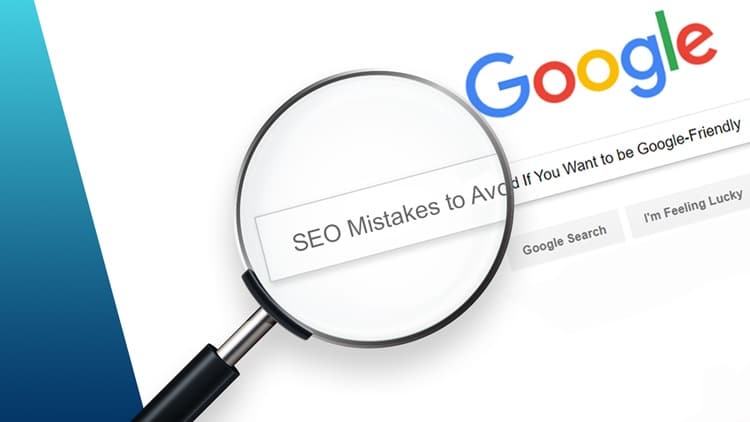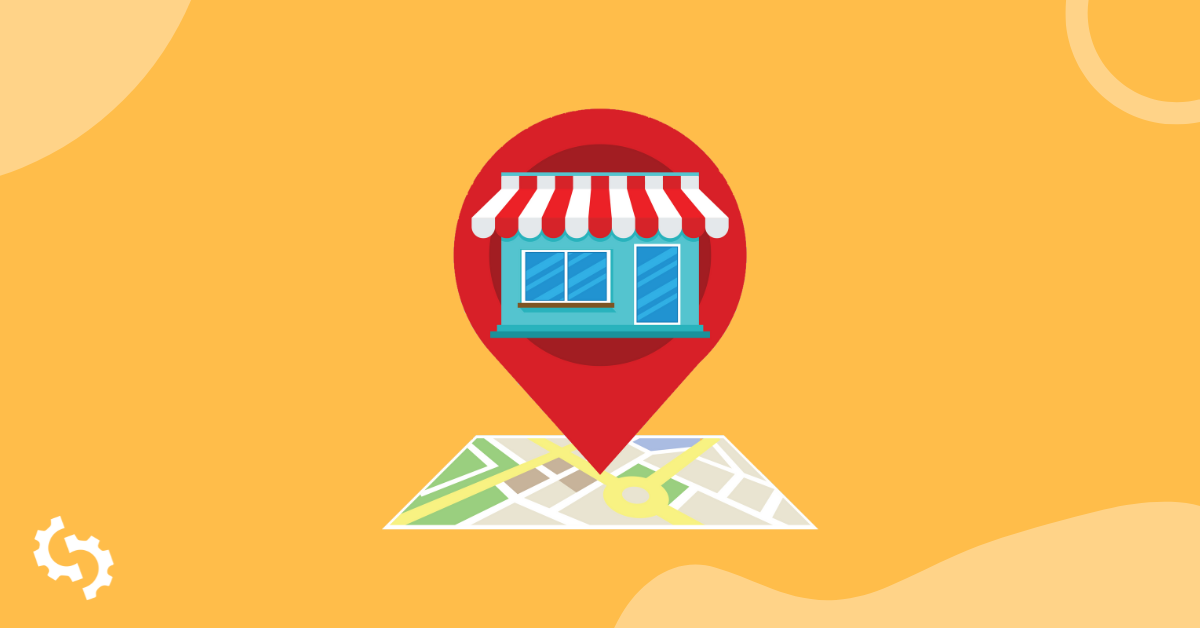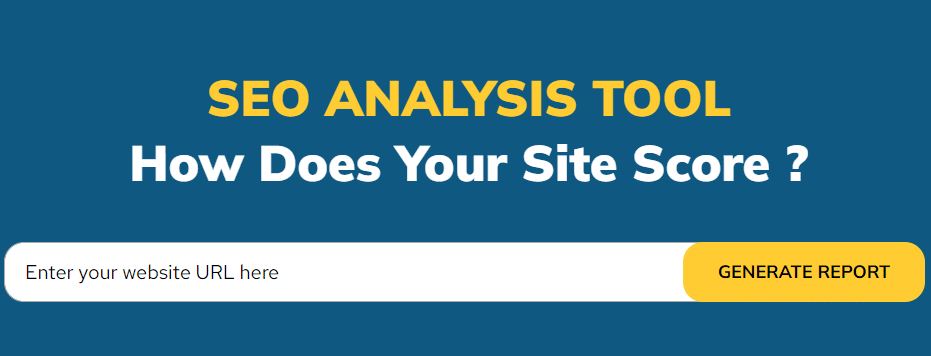What is Local SEO?
Unlike National SEO, Local SEO, or local search engine optimization, is the process of optimizing a website and its content to target local customers and increase visibility in local search results. It involves a set of techniques that help search engines like Google, Bing, and Yahoo to better understand the local relevance of a business, such as its physical location, service area, and keywords related to its products or services.
Local SEO is critical for small and medium-sized businesses that rely on local customers to grow their sales and revenue. By optimizing their website and content for local search queries, businesses can rank higher in local search results and attract more relevant traffic to their website. This can lead to increased brand awareness, increased foot traffic, and more sales.
Some common local SEO techniques include optimizing the website’s metadata, building local citations, creating localized content, and managing online reviews. Metadata optimization involves tweaking meta tags like title, description, and keywords to include location-specific information. Building local citations involves getting listed in local directories, such as Google Business Profile, Yelp, and Yellow Pages. Creating localized content involves writing blog posts, articles, and other content that targets local keywords and topics. Managing online reviews involves responding to customer reviews on platforms like Google Business Profile and Yelp, and encouraging customers to leave positive reviews.
Overall, local SEO is an essential part of any digital marketing strategy for businesses that want to attract more local customers and grow their sales. By implementing these tactics effectively, businesses can improve their online visibility and engage with local customers in a more meaningful way. Local SEO is not just about ranking higher in search results, but also about building trust and credibility with local customers. With the right tools and techniques, businesses can establish a strong online presence and create a solid foundation for long-term success.
If you want to improve your local ranking, the first step is to conduct a comprehensive local SEO audit of your website. This involves analyzing your website’s content, metadata, backlinks, and other factors that affect your local search visibility. Once you have identified the areas that need improvement, you can start implementing the necessary changes to optimize your website for local search queries.
In addition to on-page optimization, businesses should also focus on building a strong online reputation through positive reviews and social media engagement. Google My Business is a great platform to manage your online presence and interact with customers. By regularly posting updates, responding to customer reviews, and sharing images and videos of your business, you can create a more engaging and trustworthy online presence.
How do I Optimize My Website for Local SEO?
Optimizing your website for local SEO is a crucial step in gaining visibility and attracting customers in your local area. Local SEO involves a set of strategies designed to help your website rank higher in local search results, such as Google Maps and Google My Business listings. Here are some steps you can take to optimize your website for local SEO:
1. Optimize your website’s content: Make sure your website’s content includes locally relevant keywords, such as your business’s city, neighborhood, or region. This will help search engines understand that your website is relevant to local search queries.
2. Claim your Google My Business listing: Google My Business, now Google Business Profile, is a free platform that allows you to create a profile for your business, including your address, phone number, hours of operation, and other important information. By claiming your Google My Business listing, you can enhance your local SEO and make it easier for customers to find your business on Google.
3. Use local schema markup: Schema markup is a type of code that helps search engines understand the content of your website. By adding local schema markup to your website, you can provide search engines with more information about your business, such as your address, phone number, and business hours.
4. Build local links: Local links are links from other websites in your local area that point to your website. By building local links, you can improve your website’s authority and signal to search engines that your business is relevant to local search queries.
5. Create local content: Creating content that is specific to your local area is another effective way to optimize your website for local SEO. This could include writing blog posts about local events, highlighting local businesses in your industry, or showcasing customer reviews from your local area. Creating local content not only helps with your website’s optimization but also helps build a connection with your local community.
By following these steps, you can improve your website’s visibility and attract more local customers to your business. Local SEO is an ongoing process, so it’s important to continually monitor and update your website’s content and optimization strategies to ensure long-term success. Investing in local SEO can pay off big in the form of increased website traffic, more leads, and ultimately, greater business growth.
How Can I Find Local Keywords to Target?
As a business owner, targeting local keywords is an effective way to reach potential customers in your area. Here are some ways to find local keywords to target:
1. Google Keyword Planner: Use Google Keyword Planner to search for keywords related to your business and add filters to narrow down the search to your local area.
2. Google Autocomplete: Type in a keyword related to your business and see what suggestions come up in Google’s autocomplete feature. This can provide insight into what people in your area are searching for.
3. Google Business Profile: Optimize your Google My Business listing with relevant keywords and phrases that describe your business and the services you offer.
4. Local directories: Look for local directories and review sites that list businesses in your area, and use keywords related to your business in your listing.
5. Social media: Use social media platforms to find local conversations and trends related to your business, and incorporate relevant keywords in your posts and updates.
Remember that targeting local keywords is not just about adding them to your website, but also using them in your overall marketing strategy. By understanding the search behavior of your local audience, you can tailor your messaging and content to better reach and engage potential customers in your area.
What Are the Benefits of Using Local SEO?
Local SEO, or search engine optimization, is a powerful marketing technique that helps businesses to increase their visibility to local customers. This technique involves optimizing the content and structure of a website to increase its ranking on search engine results pages (SERPs) for local search queries.
There are several benefits that come with using local SEO for your business. These benefits include:
1. Increased visibility: By optimizing your website for local search queries, you can increase your visibility to local customers who are searching for products or services like yours. This can help you to attract more traffic to your website, which can lead to more leads and sales.
2. Enhanced credibility: When your website appears at the top of local search results, it can help to enhance your credibility and establish your business as a trusted authority in your industry.
3. Increased website traffic: Local SEO techniques can help to increase the number of visitors to your website, as well as the quality of those visitors. This can help to improve your website’s overall performance, including its bounce rate, time on site, and conversion rate.
4. Improved customer engagement: Local SEO techniques can help you to engage with your customers more effectively, by providing them with relevant and useful information about your business and its products or services. This can help to build stronger relationships with your customers and encourage them to become repeat customers.
5. Cost-effective marketing: Local SEO techniques can be very cost-effective, especially when compared to other forms of marketing such as traditional advertising. By targeting local search queries, you can reach potential customers who are already interested in your business, which can help to increase your return on investment (ROI).
So, How Can You Improve Your Local SEO Ranking?
1. Optimize your website: Ensure that your website is optimized for local search queries by using local keywords, including your address and phone number on your website, and creating location-specific content.
2. Claim your Google My Business listing: Claiming your Google My Business listing can help to increase your visibility on Google Maps and local search results.
3. Build local citations: A citation is a mention of your business name, address, and phone number on another website. Building local citations can help to improve your local SEO ranking.
4. Get customer reviews: Customer reviews are important for building trust and credibility with potential customers. Encourage your customers to leave reviews on your Google My Business listing and other review sites.
5. Use social media: Social media can help to increase your visibility and engagement with potential customers. Use social media to promote your business, interact with customers, and share local news and events.
How Can I Improve My Local Search Rankings?
Improving your local search rankings is crucial for getting more exposure and attracting more customers to your business. Here are some tips to help you improve your local search rankings:
1. Claim and verify your Google My Business listing
Google My Business is the most important platform to list your business on. It’s a free tool that allows you to manage your business information, such as your address, phone number, website, business hours, and more. Claim your listing and verify your business to ensure that your information is accurate and up-to-date.
2. Optimize your website for local search
Your website should have content that is relevant to your local area. Use local keywords in your meta descriptions, headings, and content. Make sure your website is mobile-friendly and fast-loading.
3. Get listed in local directories
Submit your business to local directories to increase your online presence. Some popular directories include Yelp, Yellow Pages, and Facebook Local.
4. Encourage customer reviews
Positive customer reviews can improve your local search rankings. Encourage your customers to leave reviews on your Google My Business page and other relevant review sites.
5. Use social media to your advantage
Social media platforms like Facebook and Instagram can help you reach a wider audience. Share your business information and engage with your followers to increase your visibility.
6. Get backlinks from local sources
Backlinks from other websites can improve your local search rankings. Reach out to local blogs, news sites, and business directories to request a link to your website. Make sure the websites are reputable and relevant to your industry.
7. Localize your content
Create content that is specific to your local area. This could be blog posts about local events or news, or pages on your website that highlight your business’s connection to the local community.
By implementing these local SEO strategies, you can improve your visibility to local customers and attract more traffic to your website. Keep in mind that local SEO is an ongoing process, so make sure to regularly update your information and continue to engage with your customers both online and offline. With some patience and persistence, you’ll see the benefits of a higher local search ranking for your business.
What Are Some Common Local SEO Mistakes?

1. Inconsistent NAP Information
NAP stands for Name, Address, and Phone number (NAP). Inconsistent NAP information is a significant local SEO mistake that many businesses make. If your business has different addresses or phone numbers listed online, this can create confusion for search engines and customers, leading to a decrease in your search engine rankings, making it harder for potential customers to find your business. It is important to ensure that your NAP information is consistent across all online directories, social media platforms, and your website.
2. Ignoring Google My Business
Google My Business (GMB) or (GBP) is a free tool that businesses can use to manage their online presence across Google, including Search and Maps. GMB listings are an essential part of local SEO, as they can improve your search engine rankings and increase your visibility in local search results. However, many businesses ignore their GMB listing or fail to optimize it. To make the most of your GMB listing, you should ensure that your NAP information is accurate, your business description is detailed and includes relevant keywords, and you regularly update your listing with photos, posts, and reviews. Ignoring your GMB listing can result in decreased visibility in local search results, which can hurt your local SEO efforts.
How do I Build Local Citations?
Local citations are online mentions of your business’s name, address, and phone number (NAP) on websites and directories. They play a crucial role in local SEO and help your business appear higher in search engine results pages (SERPs). Building local citations is a time-consuming but essential tasks for any business wanting to improve its online visibility. Here are some tips on how to build local citations:
1. Start with the essential directories: Google My Business, Yelp, Bing Places, and Facebook are essential directories to list your business. Make sure that your NAP information is consistent across all these directories.
2. Research other relevant directories: Research other directories that are specific to your industry or location, such as local chambers of commerce, industry associations, and local business directories. List your business in these directories.
3. Use tools: There are many tools available online that can help you identify local directories relevant to your business, such as Bright Local, Moz Local, Yext, and Whitespark. You can use these tools to track your listings and ensure that your NAP information is consistent and accurate.
4. Be consistent: Consistency is key when it comes to local citations. Make sure that your NAP information is consistent across all directories and your website. Use the same format and style for your address, phone number, and business name.
5. Build quality citations: Focus on building quality citations rather than quantity. Quality citations come from authoritative websites and directories that are relevant to your business. Avoid spammy directories or websites that have low domain authority or a bad reputation. Quality citations can boost your local SEO efforts and help you rank higher in search engine results pages.
What Are Some Local SEO Tools I Can Use?
Local SEO is a crucial part of any business’s online presence. It is the practice of optimizing your website and online profiles to be more visible in local search results. With the rise of mobile searches, local SEO has become more important than ever. Fortunately, there are many tools available to help you optimize your local SEO efforts. Here are some local SEO tools that you can use:
1. Google My Business: Google My Business is a free tool that allows you to manage your business profile on Google. By claiming your business profile, you can add your business information, hours, photos, and reviews. This helps your business to show up in local search results on Google Maps and Google Search.
2. Moz Local: Moz Local is a tool that helps you manage your business listings across multiple directories. It ensures that your business information is consistent and accurate across all directories. This helps to improve your local search rankings and makes it easier for customers to find your business.
3. BrightLocal: BrightLocal is a local SEO tool that helps you to track your local search rankings, monitor reviews, and analyze your competition. It also provides recommendations for improving your local SEO efforts. This helps you to stay on top of your local SEO game and improve your online presence.
4. SEMrush: SEMrush is a powerful SEO tool that can help you to optimize your local SEO efforts. It provides keyword research, competitor analysis, and site audit tools that can help you to identify areas for improvement. It also provides local SEO-specific features, such as local keyword tracking and local search result analysis. This can help you to understand how your business is performing in local search results and make necessary adjustments to improve your visibility.
5. Whitespark: Whitespark is a tool that helps you to find and manage local citations for your business. Citations are mentions of your business name, address, and phone number on other websites. Having consistent and accurate citations across different directories can help to improve your local search rankings. Whitespark helps you to find relevant directories and manage your citations to ensure that your business information is consistent and accurate across the web.
How do I Optimize My Google Business Profile for Local SEO?
Optimizing your Google My Business page is crucial for local searches and SEO success. Here are some tips to ensure that your page is optimized for maximum visibility and engagement:
1. Claim and verify your Google My Business page: First and foremost, claim and verify your Google My Business page to ensure that you have control over the information displayed on your page.
2. Ensure accurate and consistent NAP (name, address, phone number): Make sure that your NAP is consistent across all online directories and that it matches the information on your website.
3. Choose the right categories: Select the most relevant categories for your business, as this will help Google understand your business and display your page in relevant search results.
4. Optimize your business description: Write a compelling and informative business description that includes relevant keywords and accurately describes your business.
5. Add high-quality photos and videos: Including high-quality photos and videos of your business can greatly increase engagement and visibility on your page.
6. Encourage customer reviews: Encourage customers to leave reviews on your Google My Business page, as this can greatly improve your page’s visibility and credibility.
7. Keep your information up-to-date: Regularly update your page with accurate and current information, such as your business hours and special promotions.
By following these tips, you can optimize your Google My Business page for local SEO success and increase your visibility and engagement with potential customers.
In conclusion, using these local SEO tools can help you to improve your online visibility to increase local rankings and attract more local customers to your business. By optimizing your Google My Business listing, managing your business listings across directories, tracking your local search rankings, analyzing your competition, and managing your local citations, you can boost your local SEO efforts and stand out in local search results. With the right local SEO strategy and tools, your small business can compete with larger ones and thrive in your local area.
Need help? Contact us for a Free Consultation!














